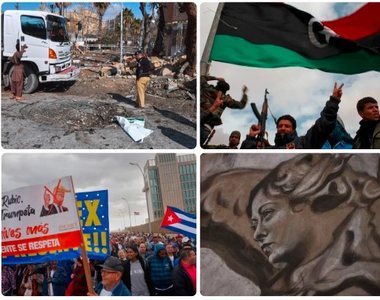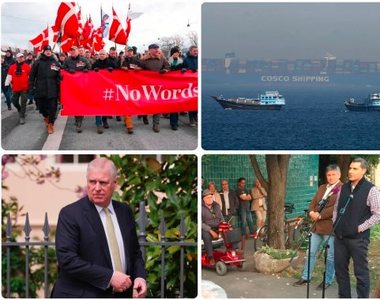
On Tuesday (August 4th), the Lebanese capital, Beirut, was hit by two explosions in the city port, killing at least 78 people and injuring more than 4,000 others. The extent of the damage is great and damage is reported several miles away from the port. The blast occurred at a terrible time for Lebanon, which was on the verge of financial collapse.
Hospitals, which are dealing with the coronavirus crisis, were overcrowded with injuries beyond capacity. Many of them called for blood donation.
Lebanese Prime Minister Hassan Diab said the cause of the blast was an amount of 2,700 tonnes of ammonium nitrate. Diab declared national day of mourning for the victims of the blast. The warehouse in which the authorities claim that the explosion took place had been the subject of warnings since 2014.
Donald Trump said the deadly blast in Beirut "looks like a terrible attack", contradicting information coming from Lebanese officials. Asked if he was "certain" that the blast in Lebanon was an attack and not an accident, he told reporters: "Well, it looks like it started with the blast." He added that he had met US generals and said they "think it was an attack".
Lebanon's Supreme Defense Council recommended declaring Beirut a catastrophic city, declaring a two-week state of emergency.
The U.S. Embassy in Beirut issued a statement advising people to wear masks and stay indoors, following "reports of toxic gases released after the blast." The windows of many houses were destroyed by the explosion, which made it difficult to breathe cleanly.
Governments around the world have provided support, including the United Kingdom, France, Australia, the United States, Canada, and Israel.
Source: The Guardian





